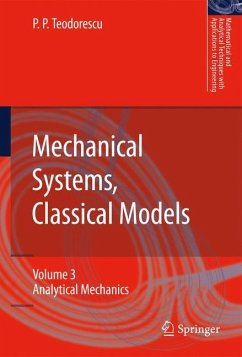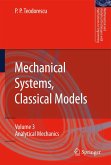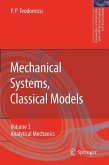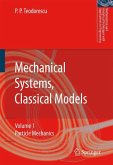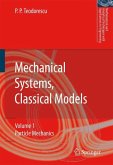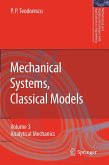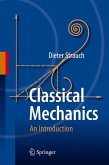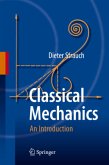All phenomena in nature are characterized by motion. Mechanics deals with the objective laws of mechanical motion of bodies, the simplest form of motion. In the study of a science of nature, mathematics plays an important rôle. Mechanics is the first science of nature which has been expressed in terms of mathematics, by considering various mathematical models, associated to phenomena of the surrounding nature. Thus, its development was influenced by the use of a strong mathematical tool. As it was already seen in the first two volumes of the present book, its guideline is precisely the mathematical model of mechanics. The classical models which we refer to are in fact models based on the Newtonian model of mechanics, that is on its five principles, i.e.: the inertia, the forces action, the action and reaction, the independence of the forces action and the initial conditions principle, respectively. Other models, e.g., the model of attraction forces between the particles of a discrete mechanical system, are part of the considered Newtonian model. Kepler's laws brilliantly verify this model in case of velocities much smaller then the light velocity in vacuum.
From the reviews: "This book is the first volume of a treatise on the classical theory of mechanical systems. ... The book is useful at the graduate level in physics and mechanical engineering, as well as in mathematics. ... The mathematical aspects are carefully presented. The text provides a detailed analysis of some generic examples, which will be enough to show how the theory is applied, at least for experienced readers. The subjects covered by the text are divided into 10 large chapters." (José Fernández-Núñez, Mathematical Reviews, Issue 2008 j)

